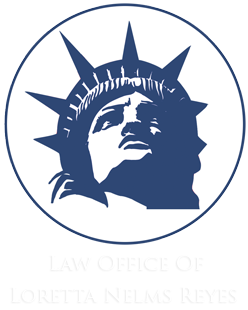Other Visas
Other Visas:
Study or Cultural Exchange Visas
F-1 Students
The F-1 visa is the most common type of student visa in the United States. The Immigration and Nationality Act provides two non-immigrant visa categories for persons wishing to study in the United States. The “F” visa is reserved for non-immigrants wishing to pursue academic studies and/or language training programs. F-1 visa is given only through “academic” institutions. Vocational education is not included in F-1 visa. For vocational education, an M visa should be obtained.
F-1 students are not authorized for employment except for on-campus work of less than 20 hours per week (full-time permitted during school recess periods). Where economic hardship is present, off-campus employment authorization of less than 20 hours per week may be obtained after the first year. Otherwise, F-1 students can obtain practical training employment authorization “Optional Practical Training (OPT)” for a period of one year, usually after completing their degree program. OPT employment is not limited to a specific employer, but must be related to the student’s field of study. Additionally, students who have completed nine (9) months of an undergraduate degree program, or students pursuing a graduate degree program, may obtain authorization to participate in an internship or cooperative training program that is part of their curriculum (“Curricular Practical Training”).
Spouses and children of an F-1 student may be issued F-2 visas so they may accompany the student. Spouses cannot engage in full-time studies at any level. Children may attend primary and secondary school, but cannot pursue post-secondary education, unless they too obtain an F-1 visa.
Neither spouses nor children can be employed while in F-2 status.
M-1 Vocational Students
The M-1 visa is a type of student visa reserved for vocational and technical schools. To obtain an M-1 visa for traveling to the United States, a student must present a signed Form I-20 at a United States embassy or consulate in his home country. The I-20 is issued by a designated school official, typically the international student adviser, after the student has fulfilled a school’s admissions requirements and presented proof of financial resources.
M-1 students are admitted into the United States for a fixed time period. When they cross the border, their I-94 departure cards are stamped with a date, unlike students with an F-1 visa. They may stay for the length of their training program plus any Optional Practical Training, plus a thirty-day grace period at the end of their training. Their stay may not exceed one year unless they are granted an extension for medical reasons. If a student violates his status by, for example, not maintaining a full course of study, he is not eligible for the grace period.
Students in M-1 status may not work on or off campus while studying, and they may not change their status to F-1.
J Visas for Exchange Visitors
A J-1 visa is a non-immigrant visa issued by the United States for exchange visitors. The purpose of this visa is to expose foreign students to the unique culture and heritage of the United States. Students must meet certain eligibility criteria and be sponsored by a private sector or government program. Exchange visitors are expected to leave the United States at the completion of their program and return to their home country.
The J-1 Exchange Visitor Program may not be used for ordinary employment.
A J-2 visa is a non-immigrant visa issued by the United States for spouses and dependents of J-1 exchange visitors. A person admitted on a J-2 visa is not permitted to take up employment in the United States unless they are granted a work permit. Visitors to the United States on the J-2 visa are permitted to study without having to apply for an F-1 (Student) visa. The J-2 visa expires and becomes invalid at the same time as the corresponding J-1 visa.
H-3 Special Education Trainee
The H-3 visa is a non-immigrant visa allowing aliens to attend a traineeship in the U.S. H-3 trainees are allowed to work in compliance with their visa. This visa is most often used by firms and companies working with a parent company or subsidiary abroad that want to give a unique work experience to the alien as a trainee.
H-3 visas are available for training in areas such as commerce, agriculture, government, professions, finance, agriculture, or in an industrial establishment. Physicians are ineligible for the H-3 classification to receive any type of medical training or education.
The training program must be provided by the U.S. company petitioning for the foreign national. H-3 trainees cannot be placed in positions regularly held by citizens and resident alien workers, and cannot be productively employed except as incidental to their approved training program.
An H-3 visa for a foreign national trainee may be issued for a period of up to two years, except for participants in special education training programs who may be admitted for up to 18 months. If the H-3 visa holder remains in the U.S. for the maximum period of time, he/she may not seek a change or extension of status, or be readmitted to the U.S. in H or L visa status until he/she has resided outside of the U.S. for a period of six months. Spouse and unmarried children under 21 may obtain an H-4 visa to accompany the H-3 principal. They may not work without first obtaining an appropriate visa, but may study without having to obtain a separate F-1 student visa.
